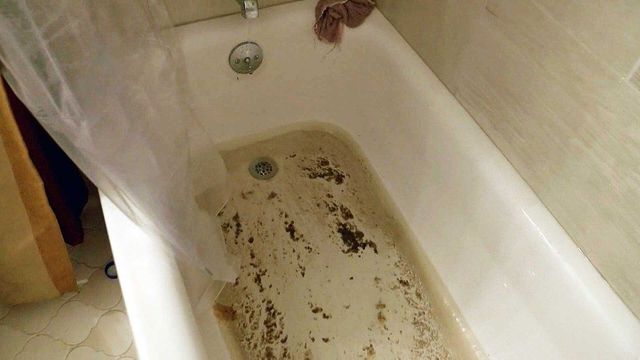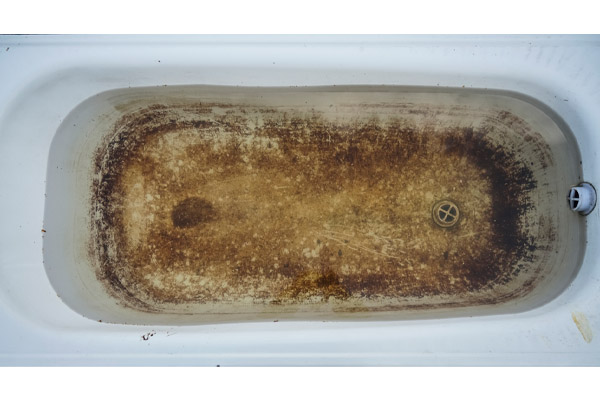Untangling the Causes of Sewage in the Bathtub
Untangling the Causes of Sewage in the Bathtub
Blog Article
The article author is making several great pointers about What to Do if Sewage Starts Coming Up Through Your Bathtub overall in the article down below.

Sewer backup in the bath tub can be an upsetting and unhygienic trouble for any kind of home owner. Not just is it troublesome, however it also postures serious wellness risks and indicates underlying problems with the plumbing system. Recognizing why sewer is coming up via the bathtub is important for taking proper activity to address the issue successfully.
Intro to the Problem
Common Reasons for Sewer Back-up
Obstructions in the Drain Line
One of one of the most common causes of sewer back-up is a clog in the drain line. This can happen because of the buildup of debris, grease, or international items in the pipes, avoiding appropriate flow and creating sewage to support right into your bathtub.
Tree Origin Breach
Tree roots seeking wetness and nutrients can penetrate sewer lines via small fractures or joints. Gradually, these origins can expand and broaden, causing substantial damages to the pipelines and causing sewer backup problems.
Recognizing the Trouble
When sewer starts backing up right into the bathtub, it's a clear indication of a trouble with the water drainage system. The wastewater that ought to be flowing away from your home is instead finding its way back into your home, which can lead to significant damage and carcinogen.
Possible Reasons
Numerous elements can contribute to sewer back-up in the bath tub. From clogs in the sewage system line to problems with the plumbing framework, determining the source is crucial for locating a service.
Aging Framework
Older homes may have outdated plumbing systems that are more at risk to rust, splits, and wear and tear. As pipelines age, they end up being more vulnerable to leakages and clogs, enhancing the likelihood of sewage backup incidents.
Heavy Rainfall or Flooding
Throughout periods of heavy rainfall or flooding, the drain system might become overloaded with excess water, causing backups and overflows. This can cause sewage backing up into bathtubs and various other components inside the home.
Signs of Sewage Back-up
Foul Odors
Undesirable odors originating from drains or fixtures, especially in the bathroom, might indicate sewer backup problems. These odors are commonly solid and consistent, indicating a trouble that calls for immediate interest.
Slow Draining Fixtures
Bath tubs, sinks, and toilets that drain slowly or otherwise whatsoever could be experiencing sewer backup. If several components are influenced all at once, it's most likely that the problem stems from a common point, such as the primary sewage system line.
Gurgling Noises
Weird gurgling or gurgling noises originating from drains pipes when water is running somewhere else in your house are a sign of air entraped in the plumbing system. This air buildup can arise from sewer back-up and ought to be investigated promptly.
Health Dangers Connected With Sewage Backup
Contamination of Water
Sewer back-up can contaminate the supply of water in your home, posturing a serious health and wellness risk to you and your family members. Direct exposure to polluted water can lead to gastrointestinal concerns, skin infections, and other illnesses.
Mold and mildew Development
Dampness from sewage back-up can produce excellent conditions for mold and mildew growth in your house. Mold spores can aggravate respiratory troubles and create allergic reactions in sensitive people, making punctual clean-up essential.
Spread of Illness
Sewage contains harmful microorganisms, viruses, and parasites that can cause a range of conditions, consisting of hepatitis, cholera, and gastroenteritis. Coming into contact with sewage or polluted surfaces places you at risk of infection.
Tidying up After Sewage Backup
Disinfection Procedures
Extensively decontaminate and disinfect influenced locations after sewage backup to eliminate harmful microorganisms and avoid mold and mildew development. Use appropriate cleansing products and safety gear to make sure risk-free and reliable cleanup.
Repair of Affected Locations
Fix any damage to floor covering, walls, or components triggered by sewer backup. Depending on the level of the damages, you might require to replace carpets, drywall, or various other materials to recover your home to its pre-loss problem.
Immediate Actions to Take
Shutting Off Water
In case of sewage back-up, it's important to turn off the water supply to prevent further contamination and damages. Locate the primary water shutoff valve in your home and closed it off until the issue can be settled.
Speaking To an Expert Plumber
Dealing with sewer backup is not a do it yourself job. Contact a licensed plumber with experience in taking care of sewage-related problems to examine the situation and perform necessary fixings or clean-ups.
Preventing Contact with Contaminated Water
Till the sewage back-up is resolved, stay clear of contact with infected water to prevent the spread of microorganisms and microorganisms. Use safety equipment if you must be in the affected area and wash your hands completely afterward.
Preventive Measures
Normal Upkeep of Sewage System Lines
Schedule routine evaluations and maintenance of your sewage system lines to recognize and resolve prospective concerns before they intensify into significant problems. This can include cleaning debris, evaluating for tree root invasion, and fixing any damaged pipes.
Mounting Backwater Valves
Take get more info into consideration installing bayou read more shutoffs in your plumbing system to stop sewer from flowing back into your home during durations of heavy rainfall or flooding. These valves automatically close when water starts backing up, securing your building from contamination.
Correct Disposal of House Waste
Stay clear of flushing anything besides bathroom tissue and human waste down the bathroom to prevent obstructions and clogs in the drain line. Dispose of grease, oil, and other home chemicals properly to lessen the threat of plumbing issues.
Why Is Water Backing Up in My Bathtub When I Flush My Toilet?
What to do about a sewer line clog
First, don’t bother with plunging. No amount of plunging will dislodge the clog in a sewer line. The clog is too far away. Plungers are for clogs in the toilet itself, not the sewer line. Plus, the most likely causes of a sewer clog are:
Tree roots Flushed toys or feminine products Grease buildup Those items don’t move easily. And in the case of tree roots, the roots need to be cut out of the pipe and the pipe will need to be repaired.
You’ll need a closet auger. A closet auger is a type of plumber’s snake with a protective cover to keep from scratching the delicate porcelain toilet. If the clog is further down, you may need to remove the toilet or use one of your cleanouts to get to the clog.
We also recommend doing a video inspection of the drain to ensure that the cause of the clog has been completely removed. Otherwise, you could have the same problem again in a few days or weeks.
https://mspplumbingheatingair.com/blog/why-is-water-backing-up-in-my-bathtub-when-i-flush-my-toilet

We had been made aware of that report about Why is There Sewage Coming Up Through the Bathtub through a good friend on another blog. Sharing is good. Helping people is fun. We enjoy your readership.
Book Now
Report this page